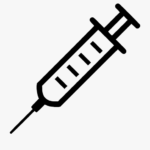Winter is here, and it is vital to prepare for winter storms that can bring extreme cold, freezing rain, snow, ice, and high winds. Winter storms can create a higher risk of vehicle accidents, hypothermia, frostbite, carbon monoxide poisoning, and heart attacks from overexertion.
Taking preparedness actions:
- Keep an emergency supply kit in your vehicle that includes jumper cables, sand, a flashlight, warm clothes, blankets, bottled water, and non-perishable snacks. Keep a full tank of gas and, if possible, have a professional check your battery, anti-freeze, and cooling system.
- Gather emergency supplies for the home if you need to stay home for several days without power. Keep in mind each person’s specific needs, including medication. Remember the needs of your pets.
- Prepare your home by insulating, caulking, and weather stripping.
- Test all smoke alarms and carbon monoxide detectors.
- Pay attention to weather reports and warnings of freezing weather and winter storms.
- Sign up for your locality’s alert system through the emergency management office for the locality.
During a winter storm, you can also stay safe by doing the following:
- Stay off the roads.
- Stay indoors and dress warmly.
- Limit your time outside.
- Prepare for power outages.
- Listen for emergency information and alerts.
- Reduce the risk of heart attack by avoiding overexertion when shoveling snow.
- Look for signs of hypothermia and frostbite.
- Avoid carbon monoxide poisoning. Only use generators and grills outdoors and away from windows. Never heat your home with a gas stovetop or oven.
- While staying safe from COVID-19, check on your neighbors by texting, emailing, or calling them.
If you need more information, contact your ECI Coordinator.






